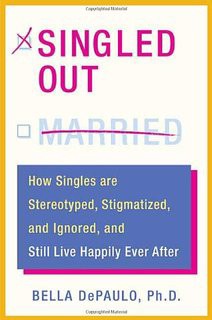Let’s All Move To A Friend Commune

You write, “With little cultural celebration or even recognition, friendships have emerged as the essential twenty-first-century relationship.” Could you talk about that, and about why you think that’s so?
Friendship, I think, so beautifully captures so many aspects and values of contemporary life. One of the big things about how we live now is choice: we don’t all have to sign up for the standard template anymore. And friendship, of course, is all about choice — although not as much choice as some people think, because friends have to choose you back. [Laughter] So it’s choice, with that one really important constraint.
Another aspect of friendship is its fluidity and its flexibility, which is very much a characteristic of contemporary life. Your friendship with someone might change over time as your interests change or as your needs change or as you move. So friendship has that kind of solidity and flexibility that so much of what contemporary life is about.
Also — and I think this one is really important — friendship ideally is egalitarian. Now, your friend might not really be your equal in every concrete way that you can explicitly establish, but within the friendship that’s the ideal. In so many of these different life spaces that I looked at, what really matters is this equality that is sharing: “I’ll do some things and you do some things and we’ll help each other in the way we need it.” Here’s this real place of equality at a time of such amazing inequality in so many other big ways in this society as a whole.
Plus, you can have a whole set of friends that captures different aspects of yourself — your friends who really are into what you care about in your work life or your personal life or your let’s-go-out-and-have-fun life or your deep, thoughtful, what’s-the-meaning-of-life life. [Laughter] And I think that’s a very contemporary thing too. It’s a movement away from looking for one person — the one — to be your everything. And friendship, ideally, is not as greedy or as jealous as some other relationships. We don’t expect our friends to be friends only with us and we don’t expect our friends to spend all of their time with us. And I think that too is consistent with how we live today.
On Longreads, Jessica Gross interviews Bella DePaulo, a social scientist specializing in “non-nuclear” living arrangements — i.e., people who don’t live within the traditional family setting so often considered to be the goal. You know, the house, the kids, the spouse. I love reading about different kinds of family units because I do agree that they get kind of ignored or de-valued! Romantic relationships are supposedly the “real thing” while friendships are…what? Just practice?
My friends and I have often joked that we’re a real family, but, I mean, we are. Lots of us live with a spouse or partner, but our lives overlap all the time. We go on vacations together; we plan each other’s weddings and bachelorette parties; we walk each other’s dogs, make dinner, sleep on each other’s couches, see movies, consult each other before making big purchases. We’re on a first-name basis with each other’s parents, nieces and nephews, siblings. We go to each other’s Christmases and Passover seders. Like, we’re in this for the long haul.
For example!! Two years ago, when I was a bridesmaid, I got to the bachelorette party early with the bride, her maid of honor, and another member of the party. We were spending the weekend away and were waiting for the other cars to meet us and the bride insisted on teaching me how to play euchre. It was her favorite card game, I knew, but I found the rules totally perplexing and stressful and didn’t understand why it had to be my favorite game as well. When I complained, she said, very seriously, “Haley, our husbands are going to die before us and we’re all going to move in together and play euchre every night, so you have to learn now.”
Still working on that goddamned card game but fingers crossed they’ll let me move into our future friend commune.